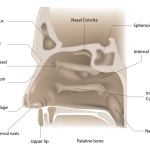
Acute sinusitis (rhinosinusitis) is a common disease with 1 in 5 antibiotic prescriptions for adults in the United States being for sinusitis. US Centers for Disease Control and Prevention (CDC) guidelines recommend using clinical criteria for diagnosis and reserving antibiotic treatment for patients with moderately severe or severe symptoms. The aim of this study was to determine the incremental effect of amoxicillin treatment over symptomatic treatments on disease-specific quality of life in adults with clinically diagnosed acute bacterial rhinosinusitis.
Adult patients meeting the CDCs diagnostic criteria for moderate, severe, or very severe acute bacterial rhinosinusitis were eligible to participate.
Study participants were randomised to received a 10-day course of either amoxicillin (test) at a daily dose of 1500 mg administered in 3 doses per day (500 mg/dose) or placebo (control) similar in appearance and taste and dispensed in the same fashion. All patients received a 5- to 7-day supply of symptomatic treatments for pain, fever, cough, and nasal congestion to use as needed.
The primary outcome was the effect of treatment on disease-specific quality of life at day 3 assessed using the the validated modified Sinonasal Outcome Test-16 (SNOT-16). Outcomes were assessed by telephone interview at days 3, 7, 10, and 28.
166 adults (36% male; 78% with white race) were randomized to test (n=85) or control (n=81);
They found that
92% concurrently used 1 or more symptomatic treatments (94% test group;90% for control group; P=0.34).
The mean change in SNOT-16 scores was not significantly different between groups on day 3; There was no significant difference in the mean difference between the two groups on day 3 or day 10 but differed at day 7 favouring amoxicillin.
[table id=20 /]
There was no statistically significant difference in reported symptom improvement at day 3 or at day 10 , whereas at day 7 more participants treated with amoxicillin reported symptom improvement.
[table id=21 /]
No between-group differences were found for any other secondary outcomes.
No serious adverse events occurred.
The authors concluded
Among patients with acute rhinosinusitis, a 10-day course of amoxicillin compared with placebo did not reduce symptoms at day 3 of treatment.
Garbutt JM, Banister C, Spitznagel E, Piccirillo JF. Amoxicillin for acute rhinosinusitis: a randomized controlled trial. JAMA. 2012 Feb 15;307(7):685-92. PubMed PMID: 22337680
Related reviews
There are two recent Cochrane reviews that have considered treatments for acute sinusitis
Venekamp RP, Thompson MJ, Hayward G, Heneghan CJ, Del Mar CB, Perera R, Glasziou PP, Rovers MM. Systemic corticosteroids for acute sinusitis. Cochrane Database of Systematic Reviews 2011, Issue 12. Art. No.: CD008115. DOI: 10.1002/14651858.CD008115.pub2.
They concluded
Current evidence suggests that oral corticosteroids as an adjunctive therapy to oral antibiotics are effective for short-term relief of symptoms in acute sinusitis. However, data are limited and there is a significant risk of bias. High quality trials assessing the efficacy of systemic corticosteroids both as an adjuvant and a monotherapy in primary care patients with acute sinusitis should be initiated.
And
Ahovuo-Saloranta A, Rautakorpi UM, Borisenko OV, Liira H, Williams Jr JW, Mäkelä M. Antibiotics for acute maxillary sinusitis. Cochrane Database of Systematic Reviews 2008, Issue 2. Art. No.: CD000243. DOI: 10.1002/14651858.CD000243.pub2.
Their conclusion was
There is moderate evidence that antibiotics provide a small benefit for clinical outcomes in immunocompetent primary care patients with uncomplicated acute sinusitis. However, 80% of participants treated without antibiotics improved within two weeks. Clinicians need to weigh the small benefits of antibiotic treatment against the potential for adverse effects at both the individual and general population level.
